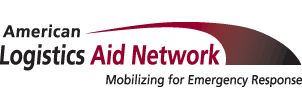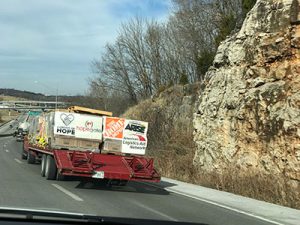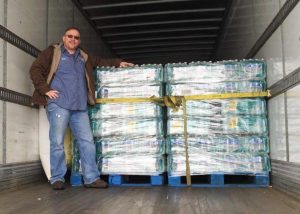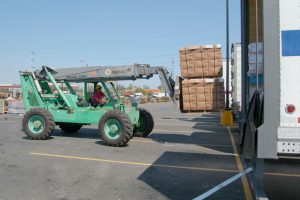[vc_row][vc_column][vc_column_text] At our house, the topic of the week is the NCAA Basketball Tournament, and the chances that the University of Florida will make it to the Final Four. (I predict slim, unfortunately.) But at work, I’ve been thinking more about the tournament’s more famous moniker: March Madness.
At our house, the topic of the week is the NCAA Basketball Tournament, and the chances that the University of Florida will make it to the Final Four. (I predict slim, unfortunately.) But at work, I’ve been thinking more about the tournament’s more famous moniker: March Madness.
It’s an apt description for what this crazy month has been like at ALAN thanks to a run of natural disasters that has included:
- the deadly tornados across Alabama and Georgia that killed more than 20 people
- historic flooding in Tennessee, Nebraska, and other Midwestern states
- and East Africa’s Cyclone Idai, which has claimed more than 300 lives
We’re doing a full-court press for each of these events. They’ve reminded us that even though some disasters have an official season, others don’t take a break just because it’s spring.
That’s why I’d like to share the following disaster game plan. It contains a few important tips, gives you a brief view of what we’ve been up to, and provides key information about how you can stay engaged, informed and in touch with us in the months ahead.
I hope you’ll find it helpful, and that like any good teammate, you’ll pass it along to your members, co-workers or colleagues who can assist. Because unlike some of the amazing groups you’ll see playing for the national title over the next few weeks, ALAN can never have too many people on its team.
On behalf of all of us at ALAN, thank you for being part of our bracket. We’re glad to have you in our court.
Sincerely,
Kathy
Three-Point Shot (Plus a Free Throw)
1. Make personal safety a priority.
If any of your facilities are located near a flood-, tornado- or other disaster-impacted area, be sure to check in with your employees to ensure they are safe and sound. And if they have been impacted, make helping them and their families your first priority, because even though many government and non-profits will be stepping in to provide relief, few things are more meaningful than knowing that the people we work with (and for) have our backs.
2. Remember that we’re here for you.
If any of your operations have been impacted by a recent disaster and you require help, information or insights, drop us an e-mail or give us a call at 863-668-4238. We’ll do our best to get you an answer or solution or to put you in touch with someone who can.
3. Let us know if you might be willing to help, even if your operations are nowhere near the impacted or damaged areas.
Over the past few weeks, we have been communicating with various emergency management and non-profit partners regarding their post-tornado, post-cyclone and flood-related needs. Although there are few open requests for support at the moment, we’re already hearing of groups preparing their requests. In fact, many of our requests come long after disasters have hit.
So if you have warehouse space, trucks, equipment, or expertise to share, go ahead and offer it now by filling out the appropriate part of our disaster relief database. (And please know that we understand you’re making an offer, not a guaranteed commitment to provide services. It just lets us know that you’re okay with us reaching out and at least asking if you might be able to assist.)
Another way to help is by visiting the “What’s The Latest And How Can You Help With Relief Efforts?” section of our micro-site. It contains a list of the latest or most urgent needs, and we try to update it frequently.
Free Throw: Please don’t host a collection drive for products. But please do consider helping in other ways instead.
Although the intention behind these drives is good, they often create more challenges than they solve – including adding more products to a supply chain that is already under tremendous strain. At a time when transportation capacity to disaster-impacted markets is so overloaded, the last thing we need to do is choke it even more.
If you’re looking for a tangible way to engage your employees in disaster relief, pick a humanitarian organization like one of the many that ALAN supports and collect money for it instead. Such donations will be much more useful and efficient, especially right now. And unlike many post-disaster product donations (which often end up in landfills), they will not go to waste.[/vc_column_text][/vc_column][/vc_row]




